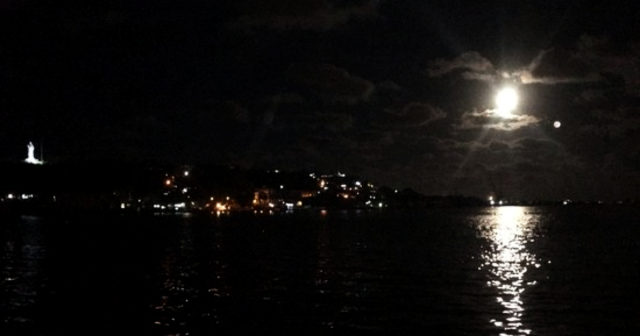The Cuban government washed its hands of a problem that seriously concerns public opinion and calls into question the principles of equity that the so-called "revolution" claims to uphold: the duration and frequency of power outages by province.
Installed as one of the main topics in the conversation about the energy crisis in the country, comments on the unfair distribution of blackouts in Cuba and the supposed privileges of the residents of Havana abound on social media, especially on that of the Electric Union (UNE).
However, the Minister of Energy and Mines, Vicente de La O Levy, referred to this widespread state of opinion in the Mesa Redonda on Wednesday, stating that the distribution of blackouts is not carried out from the UNE headquarters, but rather "is determined in each territory."
In a confusing explanation about how the "impacts" are calculated at the national level based on the deficit in generation capacity and the projected demand, De la O Levy stated that the distribution by provinces is made based on which circuits can be turned off and which cannot, depending on local priorities and particularities.
Incidents of blackouts in water pumping (at a critical time for its supply at the national level), population concentrations and consumption levels, percentage allocations based on demand, among "other factors," are what determine that provincial authorities establish blackout hours in each territory.
At the end of July 2022, amidst another peak of worsening energy crisis in Cuba, the government of Havana announced that it would schedule four-hour blackouts for the capital in "solidarity" with the rest of the country, whose population was experiencing power cuts of up to 12 hours a day.
"In a gesture of solidarity with the country, Havana will schedule four-hour power cuts during the daytime (from 10 a.m. to 2 p.m.) in city circuits, with a frequency of every three days," reported the governor of the city, Reinaldo García Zapata, at an economic plenary in the Cuban capital.
The reference to "Havana's solidarity" with the rest of the country was later removed from the headline and the references in the official media report. The newspaper Tribuna de La Habana retitled the article as "Act with greater responsibility to contribute to the country's efforts."
In line with the "solidarity" approach, the then-first secretary of the Communist Party in the Cuban capital, Luis Antonio Torres Iríbar, added that "this is the time to contribute so that the rest of Cuba experiences less suffering from the undesirable blackouts."
The official tried to downplay the precarious energy situation and ended up emphasizing the privileges of the Cuban capital over the rest of the provinces, amid continuous complaints from the population of the rest of the island about the unequal distribution of blackouts.
"It's not that Havana is going to experience blackouts because the country can't, no, it's that Havana is considering implementing those blackouts to help the rest of the country, being fair, supportive of our brothers, sisters, families, our people," he affirmed.
Around that time (from May to July 2022), the population of the Cuban provinces, except for Havana, suffered blackouts of up to 12 hours each day, exacerbating popular discontent and generating civic protests in recent weeks.
The decision unleashed a wave of irony, criticism, and mockery on social media. Comedian Ulises Toirac summarized the announcement with what he called the Cuban maxim: "I don't want to improve, I want the other one to screw up, just like me."
The social media user identified as Un poeta ahí concluded that the solution is not to see who gets hurt more, but how to remove from power those who have been hurting us for decades, followed by the hashtag: Down with the dictatorship!
At the end of August this year, "solidarity blackouts" returned to Havana. On Facebook, the Electric Company of Havana announced that service would be affected in the capital due to an emergency, due to a generation deficit in the National Electric System.
The measure generated a strong controversy on social media. While Havana was preparing to face two-hour power outages, many citizens from the provinces expressed their outrage, pointing out that these interruptions were not comparable to the long hours of blackouts they suffered daily, and had been for several years.
The trigger for the controversy was a Facebook post by the user Pedro de Jesús López Acosta. After expressing his discontent, the Cuban criticized what he considered unequal treatment between Havana and the rest of the provinces.
According to López Acosta, while in the capital the blackouts were justified by "emergencies," in the provinces they occurred constantly and for extended periods due to the deficit in electricity generation. In his opinion, this situation was evidence of the "shamelessness" and lack of "empathy" of the authorities.
What do you think?
COMMENTFiled under:
